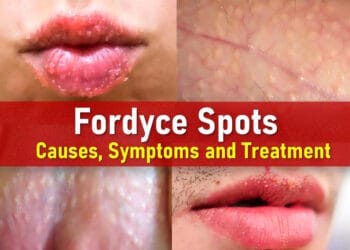Sweaty feet, clinically referred to as plantar hyperhidrosis, describe a condition where the feet produce excessive sweat. This common issue can cause discomfort, lead to foot odor, and increase the risk of infections. Understanding what causes sweaty feet is the first step toward effective treatment and management.
Hyperhidrosis Explained
Hyperhidrosis is a medical condition characterized by excessive sweating that goes beyond what the body needs to regulate temperature. It can affect various body areas, including the hands, underarms, face, and feet. When it specifically impacts the feet, it is called plantar hyperhidrosis. This can lead to damp socks and shoes, even in cool conditions or without physical exertion.
How Common Is Sweaty Feet?
Sweaty feet are more common than many realize, affecting millions of people globally. Around 3% of the population experiences some form of hyperhidrosis, but many cases go undiagnosed. Sweaty feet can begin in childhood or adolescence and persist into adulthood, often requiring long-term management.
Why Address Sweaty Feet?
- Foot Health and Hygiene: Managing sweaty feet is critical for maintaining healthy feet. Excess moisture provides an ideal environment for bacteria and fungi, leading to foot odor, athlete’s foot, and other infections. Addressing sweaty feet helps prevent these problems and promotes overall foot health.
- Improved Comfort and Confidence: Effective management of sweaty feet allows individuals to enjoy greater comfort and participate confidently in activities without worrying about dampness or odor. This can significantly improve overall quality of life.
- Emotional and Social Effects: Living with sweaty feet can be challenging, affecting daily life and self-confidence. Many individuals worry about removing their shoes in public or participating in activities requiring bare feet. Excessive foot moisture can also lead to issues like blisters, macerated skin, and fungal infections, further complicating the condition.
What Causes Sweaty Feet?
Genetics
Genetics play a significant role in the likelihood of developing sweaty feet. If hyperhidrosis runs in your family, you are more prone to experiencing excessive sweating. Understanding your family’s health history can help identify potential risks and guide treatment approaches.
Underlying Health Conditions
- Hyperhidrosis: can be categorized as primary or secondary. Primary hyperhidrosis has no identifiable cause and typically starts early in life. Secondary hyperhidrosis results from other medical conditions, such as hyperthyroidism or diabetes.
- Hyperthyroidism: An overactive thyroid gland increases metabolism, leading to excessive sweating, including in the feet. This condition may require medical management to address both the underlying thyroid issue and associated sweating.
- Diabetes: can cause nerve damage (neuropathy), which may impact sweat gland function. This often leads to persistently sweaty feet and may increase the risk of infections, requiring vigilant foot care and monitoring.
Lifestyle and Environmental Factors
- Diet and Sweating: Dietary habits can influence sweat production. Spicy foods, caffeine, and alcohol stimulate sweating, which may exacerbate the issue. Conversely, a diet rich in whole, unprocessed foods, fruits, and vegetables can help regulate body temperature and reduce excessive sweating.
- Physical Activity: Exercise naturally raises body temperature, triggering sweat production to cool the body. However, if your feet sweat excessively even after minimal activity, it could indicate plantar hyperhidrosis, requiring targeted solutions.
- Weather Conditions: Hot and humid climates increase sweating as the body works to cool itself. High humidity can make sweat linger on the skin, as evaporation is less effective, leaving feet damp and prone to discomfort.
- Footwear Choices: Non-breathable shoes made of synthetic materials trap heat and moisture, making sweaty feet worse. Opting for breathable shoes made of materials like leather or mesh can help promote airflow and reduce sweat buildup. Wearing the best shoes for sweaty feet, paired with moisture-wicking socks, can make a noticeable difference.
Symptoms of Sweaty Feet
- Persistent Moisture: Feet that remain damp regardless of temperature or activity level are a hallmark sign of sweaty feet. This persistent moisture can cause discomfort and affect daily activities.
- Odor: Sweaty feet create an environment that encourages bacterial growth, often resulting in a noticeable smell. Addressing foot odor may require a combination of hygiene practices and specific treatments.
- Macerated Skin: Prolonged exposure to moisture can cause the skin to become soft, wrinkled, and prone to breakdown. This condition increases the risk of infections and requires careful management.
- Blisters and Fungal Infections: Excessive sweat weakens the skin’s protective barrier, increasing the likelihood of blisters and fungal infections like athlete’s foot. Prompt treatment and proper footwear are essential to prevent complications.
Diagnosing Sweaty Feet
- Medical Evaluation: Diagnosis typically involves a medical history review and physical examination. A healthcare provider will assess the severity of sweating, evaluate potential complications, and identify any underlying health conditions.
- Starch-Iodine Test: A simple test involves applying iodine to the feet, followed by starch. Areas of excessive sweat turn dark blue or purple, helping to pinpoint the severity and location of sweating.
- Thermoregulatory Sweat Test: In this test, a powder is applied to the skin that changes color when exposed to moisture. The patient is placed in a warm environment to stimulate sweating, providing a detailed assessment of sweat production and distribution.
Complications and Challenges of Sweaty Feet
- Athlete’s Foot: This fungal infection thrives in damp conditions, causing itching, burning, and cracked skin. Effective hygiene and keeping feet dry are key to prevention and treatment.
- Toenail Fungus: Fungal infections of the toenails can cause thickening, discoloration, and discomfort. Treating toenail fungus often requires medical intervention and consistent hygiene practices.
- Social and Emotional Effects: Dealing with sweaty feet can impact self-esteem and lead to anxiety about participating in social or physical activities. Addressing the condition can help reduce stress and improve mental well-being.
- Footwear Issues: Finding breathable shoes for sweaty feet and using moisture-wicking socks can help alleviate discomfort. Rotating shoes and allowing them to dry completely between uses are also beneficial strategies.
Treatments for Sweaty Feet
Over-the-Counter Solutions
- Antiperspirants and Foot Powders: For many people, over-the-counter antiperspirants and foot powders offer an effective way to manage sweaty feet. Antiperspirants with aluminum chloride work by blocking sweat glands to minimize moisture. Foot powders, such as talcum powder or specialized antifungal powders, can absorb excess sweat, helping to keep your feet dry and odor-free. Applying these products consistently, especially before putting on shoes, can significantly reduce sweating and unpleasant smells.
- Choosing the Best Socks for Sweaty Feet: Wearing moisture-wicking socks is one of the most effective ways to combat sweaty feet. Look for socks made from materials like cotton, wool, or synthetic blends specifically designed to draw moisture away from your skin. Some of the best socks also feature antimicrobial properties to reduce the risk of odor and infections. Changing your socks frequently, especially after exercising, enhances their effectiveness and helps keep your feet dry and fresh.
Prescription Treatments
- Prescription-Strength Antiperspirants: If over-the-counter products are insufficient, prescription antiperspirants may be an option. These contain higher concentrations of aluminum chloride for enhanced sweat control. A healthcare provider can prescribe these treatments, which are typically applied at night to allow the active ingredients to penetrate sweat glands more effectively.
- Topical Medications: Topical treatments, such as gels or creams containing glycopyrrolate, can help reduce sweating by blocking the chemical signals that activate sweat glands. Applied directly to the feet, these medications are often effective for individuals with persistent issues and can provide targeted relief.
- Oral Medications: In cases where topical treatments fail, oral medications such as anticholinergics (e.g., oxybutynin) may be prescribed. These drugs reduce sweat production by interfering with the nerves that stimulate sweat glands. While effective, they can have side effects and are generally recommended only for severe cases under close medical supervision.
Medical Procedures
- Iontophoresis: Iontophoresis is a non-invasive treatment that uses a low electrical current to temporarily block sweat glands. During the procedure, feet are submerged in water while the electrical current is applied, reducing sweat production. Each session lasts 20–30 minutes, with maintenance treatments required for long-term effectiveness. Iontophoresis devices can also be used at home under medical guidance.
- Botox Injections: Botox injections, made with botulinum toxin, effectively reduce excessive sweating by blocking the nerves that trigger sweat glands. This treatment provides relief for several months and is typically administered by a dermatologist. Follow-up treatments may be necessary to maintain results.
- Surgical Options (Sympathectomy): For severe hyperhidrosis that doesn’t respond to other treatments, surgery may be an option. A sympathectomy involves cutting or clamping the nerves responsible for controlling sweat glands in the feet. While this procedure can be highly effective, it carries potential risks and is typically reserved for cases where other treatments have failed.
Home Remedies and Lifestyle Changes
- Vinegar Soaks: Vinegar is a natural antibacterial agent that can help reduce foot sweat and eliminate odor-causing bacteria. Mix one part vinegar with two parts water and soak your feet for 15–20 minutes. Both apple cider vinegar and white vinegar can be used. Regular soaks can help manage sweat and odor while reducing the risk of infections.
- Tea Soaks: Tea contains tannic acid, which has natural astringent properties that can reduce sweating. Steep several tea bags in hot water, let the solution cool to a comfortable temperature, and soak your feet for 20–30 minutes. This remedy can be done daily or a few times a week to help control sweat and maintain foot hygiene.
- Baking Soda and Cornstarch: A mixture of baking soda and cornstarch is excellent for absorbing moisture and neutralizing odors. Sprinkle the mixture inside your shoes and socks or apply it directly to your feet to keep them dry throughout the day. This simple remedy provides added protection against sweat and unpleasant smells.
- Wearing Breathable Shoes for Sweaty Feet: Choosing breathable footwear is essential for managing sweaty feet. Look for shoes made from materials like leather or mesh that allow air to circulate, reducing heat and moisture buildup. Avoid synthetic materials that trap moisture. Rotating your shoes and giving them time to dry between wears can also prevent excessive moisture and odors.
- Maintaining Proper Foot Hygiene: Good foot hygiene is key to managing sweaty and smelly feet. Wash your feet daily with antibacterial soap and dry them thoroughly, especially between the toes. Exfoliate regularly to remove dead skin cells, which can trap moisture and promote bacterial growth. Using antifungal sprays or powders can help keep your feet fresh and dry.
- Managing Dietary Triggers: Certain foods and drinks, such as spicy foods, caffeine, and alcohol, can trigger excessive sweating. Reducing their consumption may help control sweat production. Adopting a balanced diet rich in fruits, vegetables, and whole grains promotes overall health and may minimize sweating. Staying hydrated is also important to regulate body temperature and reduce excessive sweating.
When to See a Doctor
Signs of Severe Hyperhidrosis
If your feet are consistently damp, even in cool conditions or without physical activity, it may indicate severe hyperhidrosis. Persistent sweating can interfere with daily life and cause discomfort, making it important to consult a healthcare professional for evaluation and treatment options.
Recurrent Infections
Frequent issues like athlete’s foot, fungal nail infections, or bacterial skin infections can signal a need for medical attention. If infections persist despite good hygiene and over-the-counter treatments, a doctor can provide targeted interventions to address the root cause.
Which specialist treats sweaty feet?
- Dermatologists: Dermatologists are experts in skin conditions, including hyperhidrosis. They can recommend advanced treatments, such as prescription-strength antiperspirants, topical medications, Botox injections, or iontophoresis, to effectively manage sweaty feet.
- Podiatrists: Podiatrists specialize in foot health and can provide tailored solutions for sweaty feet. From recommending the best footwear and socks to performing treatments like iontophoresis, they can address both the symptoms and underlying causes of excessive sweating.
Frequently Asked Questions
Why Are My Palms and Feet Sweaty All of a Sudden?
Sudden sweating of palms and feet can result from stress, anxiety, hormonal changes, or medical conditions such as hyperthyroidism or diabetes. If this happens without a clear cause, consult a healthcare professional to determine whether an underlying health issue is contributing to the problem.
Why Are My Feet Cold and Sweaty in Bed?
Cold and sweaty feet in bed can occur due to poor circulation, hyperhidrosis, or certain medications and medical conditions. These symptoms arise as your body tries to regulate temperature. Using breathable bedding, ensuring proper foot hygiene, and maintaining a comfortable room temperature can help alleviate this issue. Persistent symptoms should be evaluated by a healthcare provider.
Can Diet Affect Foot Sweat?
Yes, diet can influence foot sweat. Spicy foods, caffeine, and alcohol are known to increase sweating. Opting for a balanced diet rich in fruits, vegetables, and whole grains can help regulate your body’s temperature and reduce sweat production. Staying hydrated is also essential to prevent overheating and excessive sweating.
How Can I Prevent Foot Odor Caused by Sweating?
Preventing foot odor starts with maintaining good hygiene. Wash your feet daily with antibacterial soap, dry them thoroughly, and apply antifungal powders or sprays. Wear moisture-wicking socks and breathable shoes to minimize sweat. Rotate your shoes regularly and allow them to dry between uses. Remedies like vinegar or tea soaks can also reduce odor-causing bacteria.
Are There Specific Shoes That Help with Sweaty Feet?
Yes, certain shoes are designed to help manage sweaty feet. Look for breathable materials like leather or mesh that promote air circulation. Avoid synthetic materials that trap heat and moisture. Shoes with removable insoles can absorb sweat and are easy to clean or replace, enhancing comfort and hygiene.
Is Excessive Foot Sweating Hereditary?
Excessive foot sweating, or hyperhidrosis, often has a genetic component. If hyperhidrosis runs in your family, you are more likely to develop the condition. While genetics play a role, environmental and lifestyle factors can also influence the severity of symptoms.
Can Sweaty Feet Lead to Athlete’s Foot?
Yes, sweaty feet can increase the risk of athlete’s foot, a common fungal infection. Constant moisture creates an ideal environment for fungi. To prevent this, keep your feet dry, practice good hygiene, and use antifungal powders or sprays. If infection occurs, over-the-counter or prescription treatments can effectively address it.
Are Sweaty Feet a Sign of a Medical Condition?
Sweaty feet can indicate underlying medical conditions like hyperhidrosis, hyperthyroidism, or diabetes. If you experience excessive sweating alongside symptoms like fatigue, weight changes, or excessive thirst, consult a healthcare professional for a thorough evaluation and appropriate management.
What Are the Best Treatments for Sweaty Feet?
The best treatments for sweaty feet depend on the severity of your condition. Over-the-counter antiperspirants and foot powders work for mild cases. Severe symptoms may require prescription-strength treatments, iontophoresis, Botox injections, or surgery. A dermatologist or podiatrist can guide you toward the most effective options based on your needs.
What Are the Best Socks for Sweaty Feet?
The best socks for sweaty feet are made from moisture-wicking materials to keep your feet dry. Key features include:
- Moisture-Wicking Fabrics: Opt for materials like merino wool, bamboo, or synthetic blends such as polyester or nylon.
- Breathability: Look for socks with mesh ventilation zones to enhance airflow.
- Antimicrobial Properties: Choose socks treated to prevent bacterial and fungal growth.
- Cushioning and Support: Select socks that provide comfort while reducing friction and preventing blisters.
Final Thoughts
Managing sweaty feet requires a comprehensive approach, including good hygiene, lifestyle adjustments, and medical guidance when needed. Effective treatments are available to help you achieve dry, comfortable feet. Take proactive steps to improve your quality of life and remember that you’re not alone—support and solutions are within reach.

































